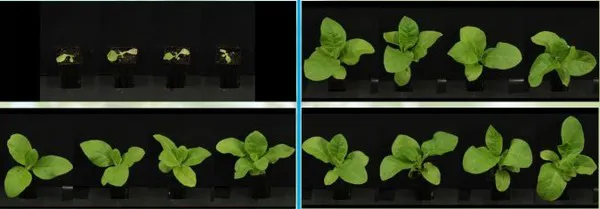AgPlenus, a company designing crop protection products, announced today that it has achieved positive results in a Proof of Concept (POC) testing of a resistance trait for its leading novel Mode-of-Action (MoA) herbicide product candidate, APH1.
The preferred agricultural practice in field crops is utilizing herbicides that only affect weeds, and not the commercial crop. Among other benefits, this allows farmers to apply the herbicide during the growing season without risk to the commercial crop. Therefore, there is importance in developing herbicides to which commercial crops have inherent tolerance, or for which resistance can be developed. Today’s announcement focuses on the progress in developing a resistance trait to AgPlenus’ herbicide candidate, APH1.

As previously disclosed, in earlier studies, APH1 demonstrated effective control over a broad panel of weeds at commercial dose rates, including control over weeds that are known to have resistance to existing herbicides.[1] The achievement of the milestone now being reported follows the conclusion of greenhouse tests demonstrating that model plants modified with a resistance trait, and treated with APH1, were resistant to it, showing no damage after application. These results indicate the potential for developing commercial crops with herbicide resistance to APH1, expanding its potential use to additional commercial crops.
Commercial crops
The next step in the development of a resistance trait is to attempt to modify soybean plants to establish resistance to APH1 in this important commercial crop.
Douglas Eisner, CEO of AgPlenus, stated: “The results of this POC experiment demonstrate the feasibility of developing seeds for commercial crops that are resistant to our herbicide candidate, APH1, potentially broadening the market for APH1 to a wider range of crops. AgPlenus intends to leverage the success of this POC experiment to expand our product offerings. We are looking forward to the next developmental stage, moving from the model tobacco plant to soybean plants, representing an important potential market segment for APH1.”
Ofer Haviv, Chairman of AgPlenus and CEO of Evogene, stated: “I am excited to see AgPlenus achieve such a significant milestone in the development of one of the most desired products in crop protection – a new MoA herbicide and a seed that is resistant to it. This success is most certainly the result of AgPlenus’ unique computational approach to crop protection development, based on the use of Evogene’s ChemPass AI engine. I look forward to seeing the continued development of these product candidates and others in the coming year.”
For more information:
Evogene
www.evogene.com
